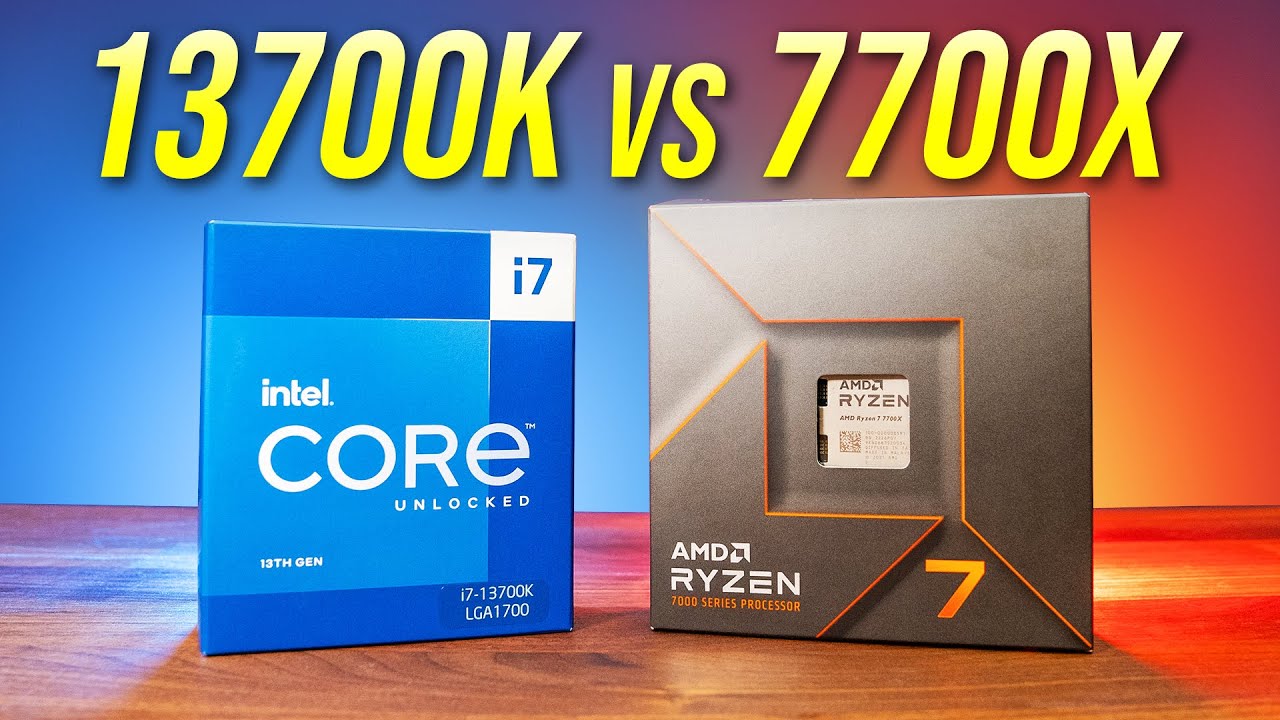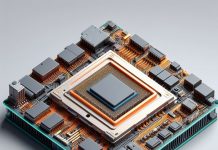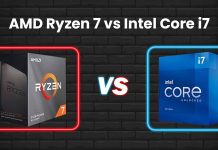AMD Ryzen 7 vs Intel i7 the Battle of Processors
In the ever-evolving world of computing, choosing the right processor can be a daunting task. Two heavyweight contenders, AMD Ryzen 7 and Intel i7, have been at the forefront of the CPU market, vying for supremacy. In this comprehensive guide, we’ll dissect the AMD Ryzen 7 vs Intel i7 competition, helping you make an informed decision and unlock the potential of your computing experience.
Understanding Processor Specifications
Before we dive into the intricacies of AMD Ryzen 7 and Intel i7, it’s essential to grasp the fundamental aspects of processor specifications. To navigate this processor showdown effectively, let’s explore the key terms and technicalities that will shape our comparison.

Cores and Threads:
The core count and thread count play a pivotal role in a processor’s multitasking capabilities. More cores and threads typically mean better multitasking performance.
Clock Speed:
Clock speed, measured in gigahertz (GHz), determines how quickly a processor can execute instructions. Higher clock speeds can lead to faster single-threaded performance.
AMD Ryzen 7 Series: Unleashing Multicore Mastery
Now that we have a foundational understanding of processor specifications, let’s delve into the first contender in our showdown—the AMD Ryzen 7 series.
The Ryzen Revolution:
AMD’s Ryzen 7 processors have been a game-changer in the CPU landscape, particularly in the realm of multicore performance. With options like the Ryzen 7 5000 series, AMD brings impressive core and thread counts to the table.
Multicore Dominance:
Ryzen 7 processors are designed with multitasking and productivity in mind. They excel in tasks that require substantial parallel processing power, such as content creation, video editing, and 3D rendering.
Intel Core i7 Series: The Single-Core Maestro
Now, let’s shift our focus to the second contender in the battle of processors—the Intel Core i7 series.
Intel’s Single-Core Supremacy:
Intel’s Core i7 processors have long been revered for their exceptional single-threaded performance. With clock speeds that can rival the best, Intel has carved a niche for itself in this arena.
Single-Threaded Excellence:
Core i7 CPUs shine in applications that rely heavily on single-threaded performance, such as gaming, where high clock speeds translate into smoother gameplay.
AMD Ryzen 7 vs Intel i7: Performance Comparison
With a solid understanding of both AMD Ryzen 7 and Intel i7 processors, it’s time to put them head-to-head in a performance showdown.
Multicore vs. Single-Core:
In this epic battle, we’ll explore the strengths of Ryzen 7’s multicore prowess against Intel i7’s single-core dominance.
Benchmarks and Real-World Tests:
We’ll dive into benchmark scores and real-world performance tests to provide you with data-driven insights into how these processors handle various tasks.
Price and Value Considerations
In the AMD Ryzen 7 vs Intel i7 showdown, pricing and value play a significant role in the decision-making process.
Balancing Performance and Budget:
We’ll explore how the price-to-performance ratio of Ryzen 7 and Intel i7 processors can impact your decision. Are you getting the most bang for your buck?
Budget Constraints:
For users with budget constraints, we’ll provide insights into which processor series offers the best value without compromising on performance.
Frequently Asked Questions About AMD Ryzen 7 and Intel i7 Processors
1. What is the primary difference between AMD Ryzen 7 and Intel i7 processors?
AMD Ryzen 7 processors often excel in multicore performance, ideal for multitasking and content creation. Intel i7 processors, on the other hand, are known for their strong single-threaded performance, making them great for gaming and certain professional applications.
2. Which one is better for gaming, AMD Ryzen 7 or Intel i7?
Intel i7 processors are renowned for their single-threaded performance, making them a popular choice for gaming, where high clock speeds matter. However, recent AMD Ryzen 7 processors also offer excellent gaming performance and are competitive in this regard.
3. Do AMD Ryzen 7 processors require a specific motherboard?**
Yes, AMD Ryzen 7 processors use different sockets and chipsets compared to Intel i7 processors. It’s essential to choose a compatible motherboard with the appropriate socket to match your Ryzen 7 CPU.
4. Can I upgrade from an Intel i7 to an AMD Ryzen 7 processor on my existing system?
Switching from Intel to AMD or vice versa typically involves replacing not only the processor but also the motherboard due to differences in sockets. You may also need to reinstall your operating system and update drivers.
5. Are AMD Ryzen 7 processors more power-efficient than Intel i7 processors?
Power efficiency varies among specific models, but generally, AMD Ryzen 7 processors have become more power-efficient in recent generations. However, both AMD and Intel offer energy-efficient options for users concerned about power consumption.
6. Which processor series is more cost-effective in terms of price-to-performance ratio?
The cost-effectiveness depends on the specific models and their prices at the time of purchase. It’s advisable to compare prices, and benchmark performance, and consider your specific use case to determine which processor offers the best value for your needs.
7. Can I overclock AMD Ryzen 7 and Intel i7 processors?
Yes, many AMD Ryzen 7 and Intel i7 processors are unlocked and allow for overclocking. However, not all models support overclocking, so be sure to check the specifications of your CPU.
8. Do AMD Ryzen 7 and Intel i7 processors require specific cooling solutions?
High-performance processors generate heat, so it’s recommended to use an adequate cooling solution. While some processors come with stock coolers, enthusiasts may opt for aftermarket coolers for better thermal performance.
9. Which processor series offers better compatibility with professional software applications?
Both AMD Ryzen 7 and Intel i7 processors are compatible with a wide range of professional software applications. The choice should depend on the specific requirements of the software you use.
10. How do I decide between AMD Ryzen 7 and Intel i7 for my next PC build?
The decision should be based on your specific needs and use cases. Consider factors such as gaming, content creation, multitasking, and budget. Review benchmarks, user reviews, and compatibility with other components to make an informed choice.
Conclusion:
In the epic battle between AMD Ryzen 7 and Intel i7 processors, there is no one-size-fits-all winner. Your choice ultimately depends on your specific computing needs, preferences, and budget. If you require robust multicore performance for tasks like content creation, video editing, and multitasking, AMD Ryzen 7 processors are a formidable choice.



